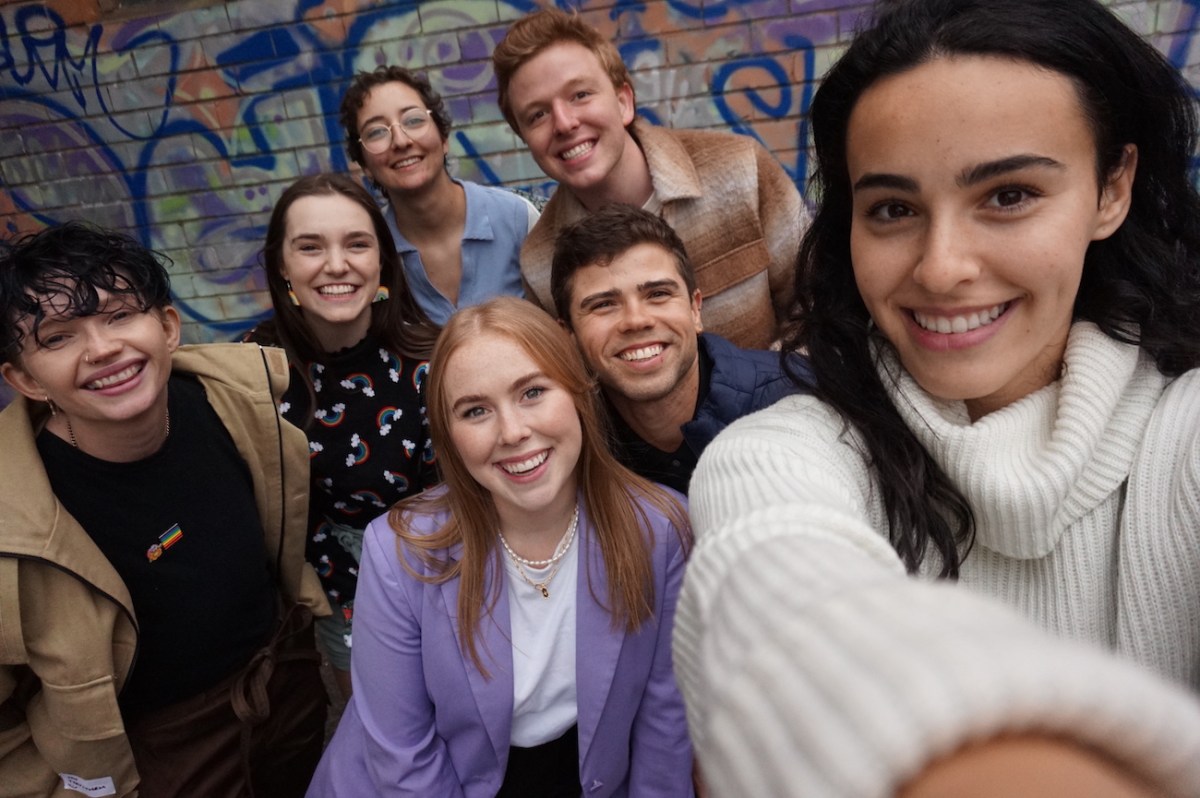Lucy Thomas is co-founder and CEO of Project Rockit, a social enterprise tackling bullying, and advocating for better policy to support kids at school.
What does your business do, and who are your customers?
At PROJECT ROCKIT, we’re in the business of empowering school students with the skills, self-awareness and empathy to challenge (cyber)bullying.
We do this in three ways. First, there’s our signature youth-driven workshops. We recruit and train young leaders to deliver workshops into schools all over Australia – our face-to-face workshops alone have positively impacted over a half a million young Aussies. So our core customers are passionate teachers and school principals.
Second, we build momentum through digital programs and events – this deepens our social impact and ensure that no young person misses out on a PROJECT ROCKIT experience.
Finally, we drive innovation, youth consultation and co-design to support policy-makers working at social media platforms and in government to make decisions that are informed by young people’s perspectives.
What’s your mission?
PROJECT ROCKIT is a youth-driven social enterprise whose mission is to build a world where kindness and respect thrive by mobilising young people to unite against (cyber)bullying, hate and prejudice.
What does it mean to you, to be a ‘social enterprise’?
Being a social enterprise means that PROJECT ROCKIT exists to fulfil a social purpose – building a world where kindness and respect thrive – both in the work we hustle on out in schools and internally within our business. We strive to realise this purpose in our hiring, our customer relationships, our collaboration with community partners, our thought leadership, in our team culture and within ourselves. A big part of this is elevating young people into career-starting employment – to date we’ve hired over 70+ young people, supported them with extensive training and development, and nurtured them into career opportunities within the social impact sector.
Can you scale a mission? Are there challenges around growing your business, while also staying committed to your impact thesis?
Yes, we can scale a mission! And yes, there are challenges in growing the business while staying true to our purpose!
When it comes to tackling bullying, hate and prejudice, one of the greatest challenges is that the work is never done. There’s a constant and irrefutable rationale to be investing more and more back into deepening our impact. But sometimes you need to preserve these resources to support scale. Over time, we’ve made the transition from providing a huge range of bespoke offerings with tailored add-ons, freebies and in-kind support towards a tighter suite of products that are scalable, more easily resourced, and map directly onto our Theory of Change (i.e. still don’t compromise our impact).
The other game-changer for us is the recent launch of our not-for-profit arm, The Project Rockit Foundation, which will actually enable us to access funding to provide more complimentary offerings and sustainable support for school facing geographic and socio-economic barriers to accessing our programs.
How have you seen investor sentiment change over the past 5 years, when it comes to recognising the value (or cost) of being mission-led?
Absolutely. My Dad’s a retired Financial Planner and throughout his career, generating profit and social impact were traditionally viewed as mutually exclusive. But over the course of building PROJECT ROCKIT, I’ve really observed how Dad’s original views have grown – his two children have built a business with a 15-year track record of financial sustainability and social impact. I think this reflects a broader shift in investor sentiments as well.
Our world faces such significant social and economic challenges that have fundamentally changed the meaning of ‘providing for future generations.’ There’s a healthy expectation that all businesses (not just NFPs and social enterprises) can and should be serving positive outcomes for our community. Today’s investor is as much concerned with the state of the world that their grandchildren will inherit as they are with profitability.
Was there a business (either local or globally) that influenced the development of your organisation?
My sister Rosie and I were fresh out of school when we founded PROJECT ROCKIT. We didn’t know what ‘social enterprise’ meant, but intuitively saw business as a self-evaluating approach to social change – ‘schools won’t pay for services unless they’re effective’ – and established PROJECT ROCKIT accordingly.
At the time, ’youth-led’ was not a widely accepted approach, but we anticipated the rise of a new problem called ‘cyberbullying’ and as young people knew that WE needed to lead the change. I think we were less so influenced by a particular business than we were by the lack of businesses like the one we envisaged!
What’s in store for your business in 2022?
Well after two years of COVID-related chaos effectively grinding our growth to a halt, we’ve seen an explosion of demand for PROJECT ROCKIT programs – in Term 1 alone we reached over 21,000 young people. Our team is squarely focused on building our capacity to scale our workshop delivery across Australia to support young people and educators where we’re most needed.
We’ve also been funded under the federal Impact Investment Ready Growth Grants program, and will be throwing our hustle into building our capacity, modelling, strategy and structure to prepare to raise capital in 2023. Just imagine what we’ll be able to achieve in partnership with Australia’s impact investment community.
Watch this space!
Subscribe for all the latest impact news

